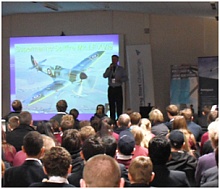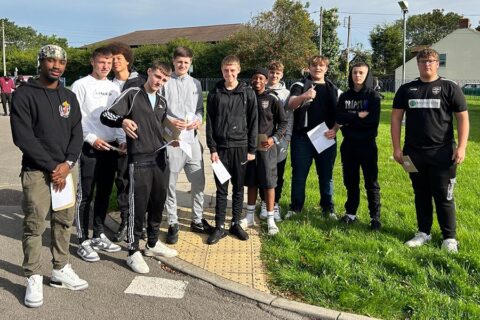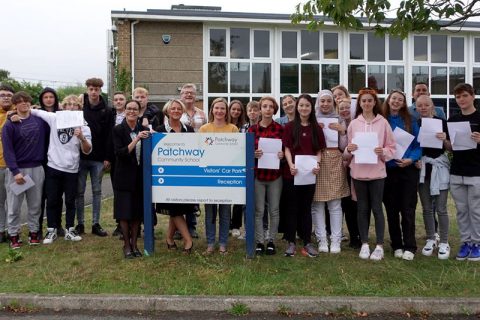
Aerospace companies from around the South West, including Patchway-based Rolls-Royce, recently staged the Grand Final of a schools competition which aims to encourage Key Stage 3 students to take up science, technology, engineering and maths.
Over 130 pupils from thirteen secondary schools in the South West took part in the Grand Final of the Flying Start Challenge at the Fleet Air Arm Museum, Yeovilton last Wednesday (20th March).
The challenge began before Christmas when representatives from the companies went into schools to deliver three lessons, covering the basics of flight, testing and materials. The schools were provided with a starter kit of materials and then tasked to design and build a hand held glider, as well as a poster explaining the details of their budget and design process.
Throughout February, regional finals were held to narrow the teams down to the twelve that would compete in the Grand Final Fly-Offs. Each team that went through was allowed to bring the other participating members from their school to the Grand Final to take part in the other activities throughout the day.
The teams had to answer an engineering quiz, have their glider and poster marked by a panel of VIPs, design and build a control tower from paper, take part in a challenge to protect an egg when dropped from above and, the most exciting part of the day, take part in the Fly Off under the Concorde exhibit! The pupils and assembled VIPs were also given two exciting presentations from the Battle of Britain Memorial Flight and the Bloodhound project.
During the Fly Off, the teams flew their gliders trying to be the team whose glider flew the furthest. The longest flight on Wednesday was from the ‘Flylo’ team at Mangotsfield, Bristol, with their glider flying an impressive 26 metres.
The ‘Aero-glide’ team from Bradley Stoke Community School finished in eighth place.

Photo: A team taking part in the Control Tower Build activity.
More about the Flying Start Challenge
The Flying Start Challenge is a school competition run by businesses and organisations in the South West of England. Initiated by the Campaign to Promote Engineering, the Challenge is now entering its 11th year and still offers a great opportunity for schools to forge links with local industry.
The sponsors are: AgustaWestland, Airbus, Atkins, Fleet Air Arm Museum, GE Aviation, MBDA, Messier-Bugatti-Dowty and Rolls-Royce.
The Challenge is open to pupils in Years 7 to 9 who are organised into teams of four, with the aim of “designing and building a hand-launched glider made from sustainable materials”. Each team is supported by trainees from the sponsor companies, with lessons on design, manufacture and testing, in addition to some practical advice on their glider designs.
Each team gets the chance to fly their glider at the regional fly-off. Teams will be judged on the distance flown, and also on a poster presentation detailing the design decisions made. Regional fly-offs are held in Cheltenham, Bristol and Yeovil.
The winning teams from the Regional Fly-Off progress to the Grand Final held at the Fleet Air Arm Museum at Yeovilton. The teams take part in a series of engineering challenges organised by the companies involved and compete to be named the best team. The winning team receive free glider flights with the winning school awarded a voucher for £1,000 of design and technology equipment. Second place receives £200, third place £100.



